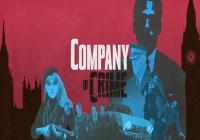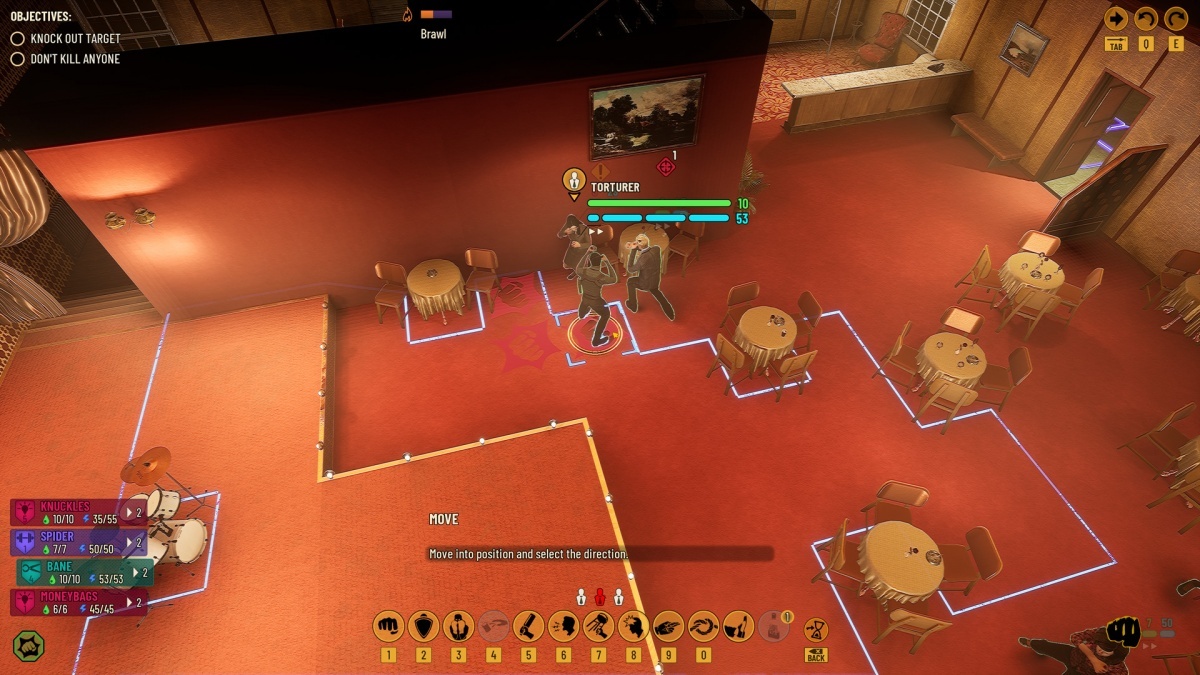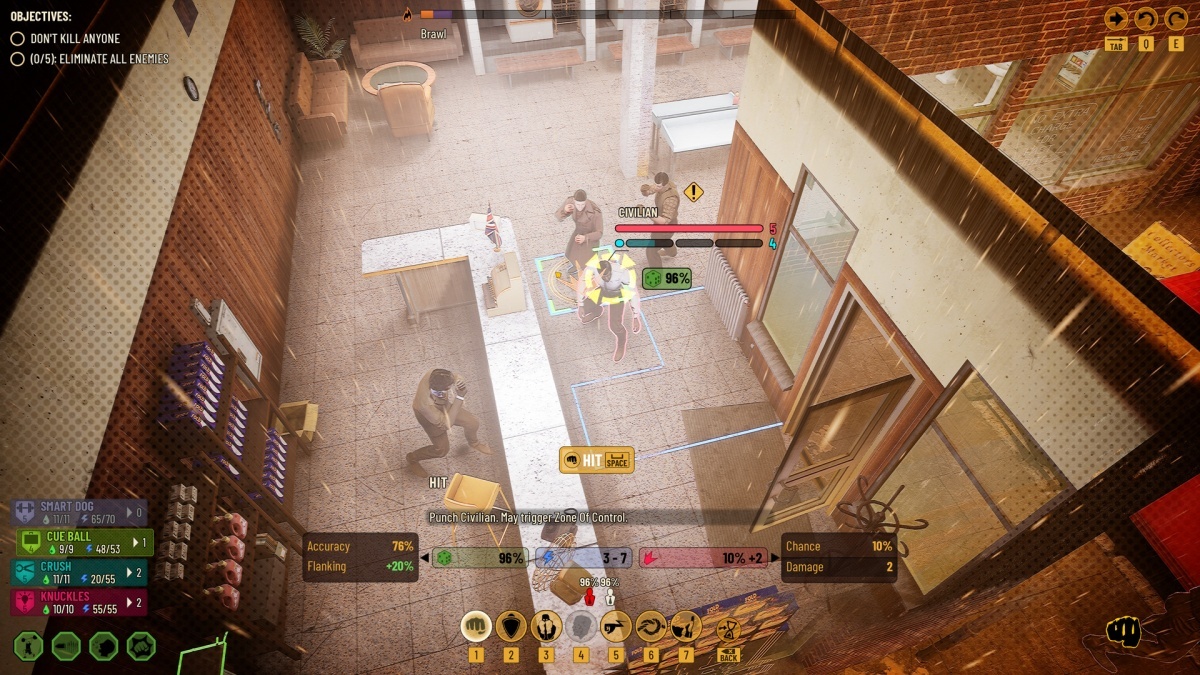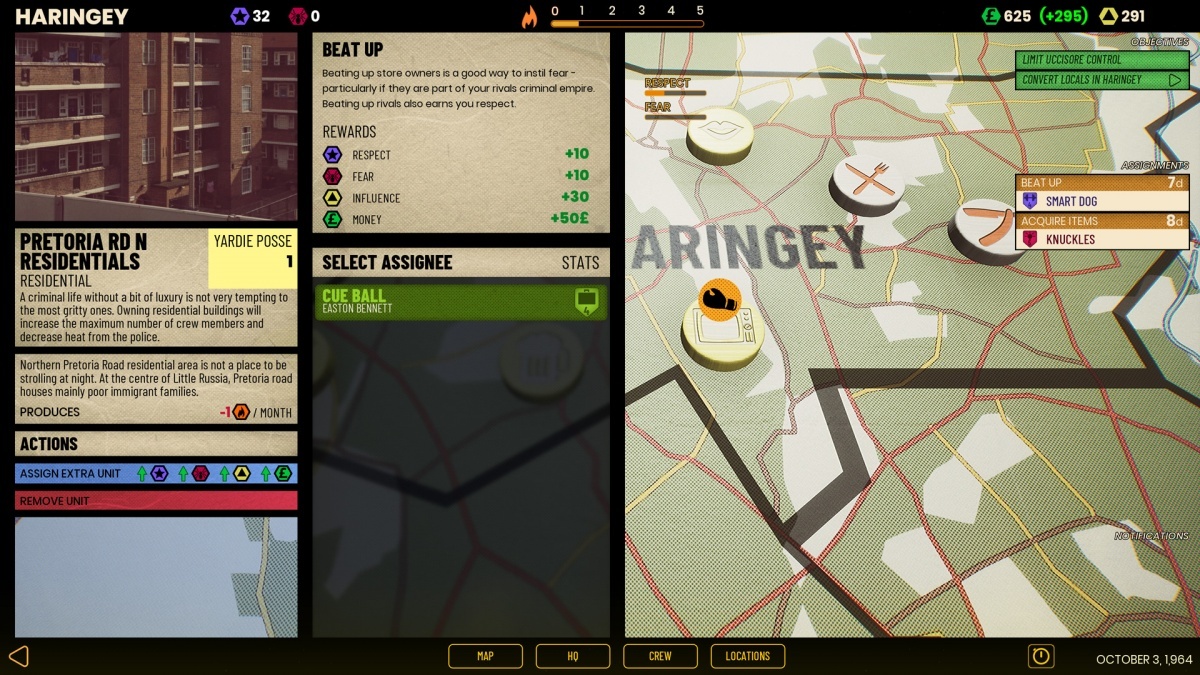Company of Crime (PC) Review
By Eric Ace  03.12.2020
03.12.2020

Essentially a genre all its own, XCOM-style games feature controlling units on a tactical grid, moving and attacking. Company of Crime uses these elements in an entirely different setting of '60s London, in a game of literal cops versus robbers. Allowing players to play both sides of the experience, they must build up various resources, their crew, and ultimately defeat the other side through both a strategic layer and a tactical battle system.
Touted as a type of XCOM where you play criminals or the police, Company of Crime gives players not one, but two complete campaigns of playing this dynamic from both sides. Though there are some severe problems with the UI and various other aspects, what the developer set out to do was a fun twist from the typical sci-fi or post apocalypse these tactical games tend to occupy. With a type of campy, dark humor, you will be head bashing employees and robbing laundromats across the city in an attempt to take over as the biggest crime boss.
Taking place in London in the '60s, players choose one of the two sides to begin their campaign against the other. Criminals focus on acquiring money, getting fear and respect, recruiting new gang members, trying to keep the heat off of themselves and expanding their territory. Police play different in more of a cat and mouse style of trying to slowly find where the criminals are at, to then go find and arrest them.

Before getting into the heart of it all, one thing this does well in this regard is the sense of tension both sides feel. As the criminals it constantly feels like the cops are one step away from you, and you can never catch a break. Trying the police is a completely different experience of suddenly feeling blind and not knowing where the enemy is hiding. It was a refreshing experience to hop on the other side and actually feel like it was an uphill battle for them as well.
There are two major sections of gameplay: the strategic and the tactical, much like XCOM, of course. On the strategic section (depending on their side) they generally try to use their resources efficiently to further their cause against the multitude of options presented. For criminals this means acquiring new businesses to either rough up for cash or to try to acquire for themselves for passive bonuses, finding the new gang members and so on. Police play in reverse, having to slowly whittle down where the crime bosses are hiding.
Primarily, this takes place in tactical combat. Sending in small squads of a few units, these goals usually involve beating somebody up, and then escaping the cops. The game is almost entirely melee focused, which is unique, though it ends up being flawed. The system places an emphasis on things like positioning, facing and zone of control. Characters have a variety of attacks from grapples, disables, kicks, pushes and head-bashes.

Though they attempted to make a detailed system of melee combat, such as targeting knees, eyes and so on, it ends up feeling repetitive. Either players can do damage and kill people (which makes cops come far faster), or just beat them down enough to knock them out. What ends up happening, though, is every attack feels very much the same, so a regular punch ultimately does the same as the chair bash - both are just reducing stamina. It feels like a wasted opportunity and leads to the repetition that eventually grinds the game down.
To illustrate this point better, consider that in something like XCOM classes feel far different, whether it is the AoE-happy grenadier, or the long-range sniper - neither of them feel the same. In Company of Crime they all do, however - they all attack at melee, all do some damage, and that is basically that. Perhaps it is part of the problem of having a more "realistic" game where it is harder to differentiate characters.

One of the frustrations at hand is the amount of glitches and UI problems. There were constant bugs and glitches on the strategic screen, notably involving sending squads to ready missions. Often units were constantly incorrectly allowed into combat and consequently getting pulled into missions they were not assigned for, and missing out on missions they themselves were at. In battle one of the worst problems is the game does a type of autosuggest for movement, and it is very hard to un-click this. A painful majority of the time, a click on a tile you want instead sends the character to the suggested area, resulting in frequent attacks and damage. For a title where positioning matters so huge, this is a serious blow given the frequency of occurrence and severity when it happens.
The art and style is unique; a type of dark comedy that doesn't take itself to serious, something that was appreciated. Sadly, although this has some style, and some novel ideas, it never fully felt fleshed out. Combat was too buggy and repetitive to really recommend, given the typical outcome of "let's all stand in a circle punching and see who comes out" feel to most engagements. Perhaps with some reworks and patching it could be made to come around, but as it stands now the novel ideas and gameplay don't deliver to the promise.

Cubed3 Rating
Average
While deserving accolades for trying something different and having two separate campaigns, ultimately they both end up feeling repetitive. Melee-focused combat is a fun idea, but there are too many problems and glitches. Though there are different classes, the combat is too repetitive and too much of the same thing to be fun for long. Something new was tried here, and that's commendable - it just did not hit the mark.
Comments
Comments are currently disabled

 Sign In
Sign In Game Details
Game Details
 Out now
Out now  Out now
Out now  Out now
Out now  Out now
Out now  Subscribe to this topic
Subscribe to this topic Features
Features





 Top
Top

